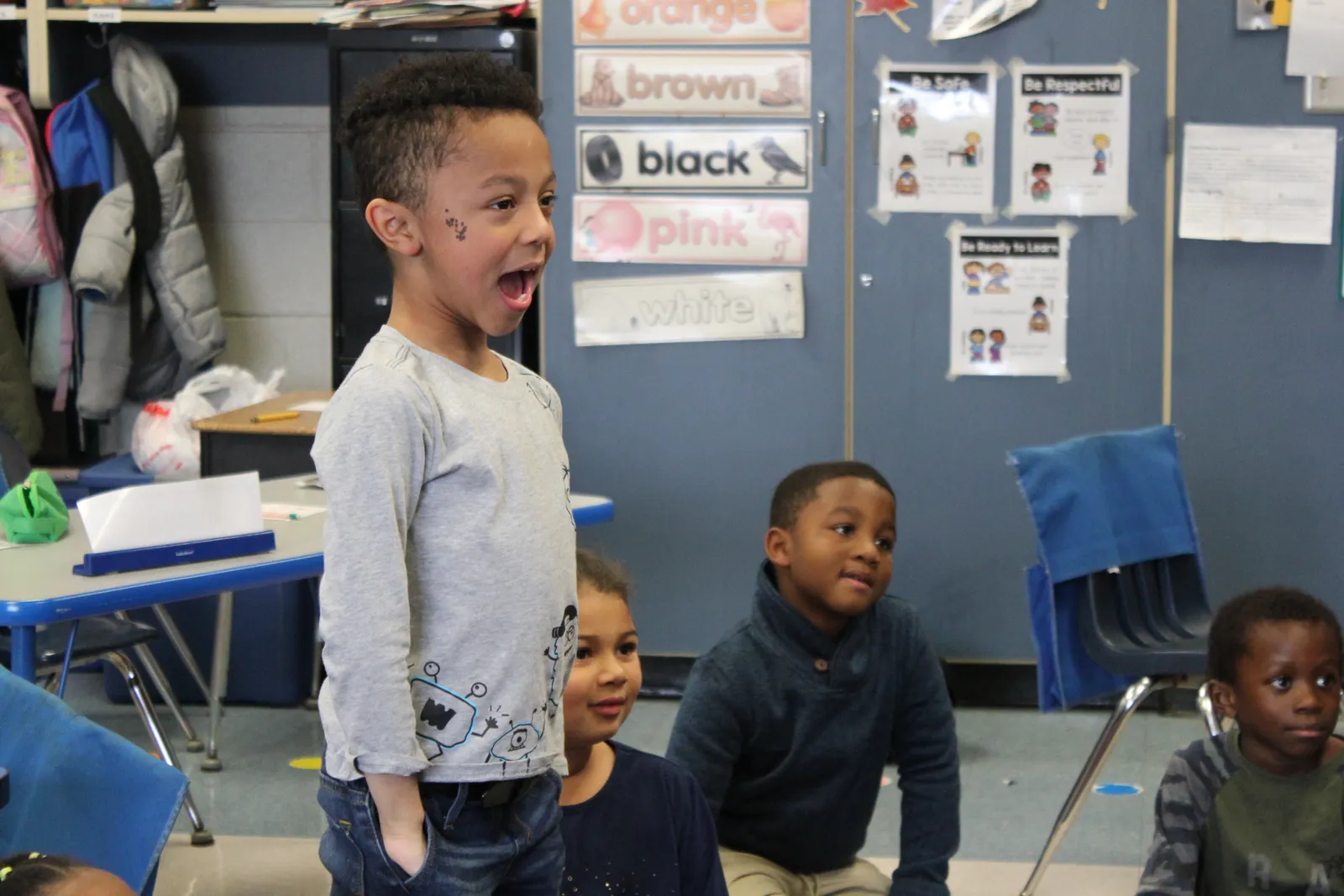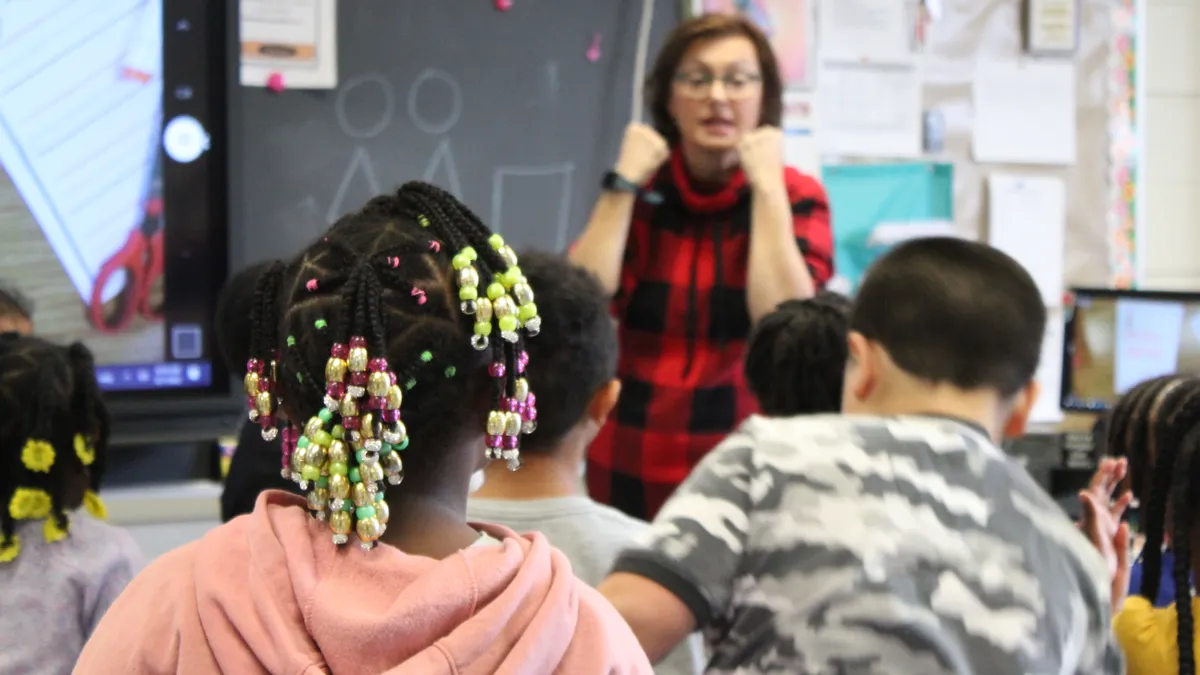The Sto-Rox School District in McKees Rocks, Pennsylvania, is in dire fiscal and academic trouble.
Years of negative fund balances led to a drop last year in the district's credit rating to the level of substantial risk of meeting its financial commitments. Its junior and high school English and math assessment scores fall way below statewide averages. Its school violence rates outpace those of the state and surrounding school systems.
Educators in the district are now hoping a financial recovery plan and an intense focus on student supports in reading and social-emotional learning will help put the district on a path toward progress.
"We have to improve the outcome of our kids in reading, and we have to support their mental health — have to, have to, like nonnegotiable," said Megan Van Fossan, who became substitute superintendent of the 1,200-student district in May. Her title will be superintendent starting Feb. 1, 2023.
Assessing reading skills
A core part of the plan to improve reading proficiency is through a ramped up professional development program to help teachers identify individual students' strengths and needs, as well as quickly find evidence-based interventions to help students make progress.
This school year, kindergarten and 1st grade teachers at the district's Sto-Rox Primary Center began using a dyslexia screener for students. The EarlyBird screener was developed at Boston’s Children’s Hospital in partnership with the Florida Center for Reading Research.
The tool uses speech recognition technology, which was developed for the screener by Dublin-based SoapBox Labs, to determine students’ pre-reading skills with game-based assessments that take 20 to 45 minutes depending on the grade level and benchmark period. The computer-adaptive tests change prompts or questions based on test-takers' responses. Teachers receive data about students' performance on the assessments, as well as resources and recommendations based on each learner's profile.
"We're not asking anyone to be perfect in our system, but we are asking everyone to try, including the kids."

Megan Van Fossan
Substitute superintendent of Sto-Rox School District
The district used $3,588 in federal COVID-19 emergency funds to pay for professional development for certified staff administering the EarlyBird assessments and assessments for 200 kindergartners and 1st graders this school year, Van Fossan said.
Increasing engagement
Although it's too early to gauge the impact on staff and student performance, Van Fossan said she's heard no negative feedback from teachers.
At the same time, attendance rates have increased. Last year, daily attendance was rarely above 70% but so far this year, it's hardly ever under 80%, Van Fossan said. "Already a huge win, let me tell you. For me — huge," she said. "Kids don't come to school when it's terrible."
Heather Johnston, principal of Sto-Rox Primary Center, a K-3 school, said addressing low reading proficiency and supporting student's mental and social-emotional health are some of her biggest challenges. Johnston is also principal of Sto-Rox Upper Elementary School, which includes grades 4-6. Together, the schools have nearly 600 students and about 50 certified staff members.

In addition to literacy supports, teachers at her schools are also working to get students more engaged in learning by designing class spaces and lessons to be more interactive and hands-on, Johnston said.
Quickly accessing literacy interventions also narrows the window of how long students struggle with reading, she said.
"I would like to see as many kids as possible leaving kindergarten, leaving 1st grade reading," Johnston said.
She and Van Fossan said they expect improved reading proficiency to lead to improved student behaviors. A majority of students with behavior challenges are students who struggle with reading, Johnston said.
"Acting out is their way of not looking or feeling stupid, or that they can't do something," Johnston said.
The district's Financial Recovery Plan not only aims for a fiscal stability, but also includes goals for improvements in instruction, school culture and climate, talent management, resource management and school safety.
Supporting educators
Van Fossan said data collected from the EarlyBird professional development modules helps identify areas of training teachers need more assistance with, just as data from student assessments helps hone in on areas of needed support for the young learners.
"We're not asking anyone to be perfect in our system, but we are asking everyone to try, including the kids," she said.
In addition to the literacy screener, the district reworked its master schedule to give all professional staff members 45 minutes of daily professional development or collaboration time. Much of that period is spent on planning for students' academic and social-emotional needs, Van Fossan said.
"I think we're all trying our best every day to do the heavy emotional work, and it's not easy," she said.
Van Fossan said the district isn't interested in instant results and understands it will take more work and time for the district to meet its academic and fiscal goals.
"We weren't looking for quick fixes. We weren't looking for short-term wins. We were looking for the long game," she said.
Correction: In a previous version of this article, the relationships between EarlyBird partners were misidentified. It has been updated for clarification.














